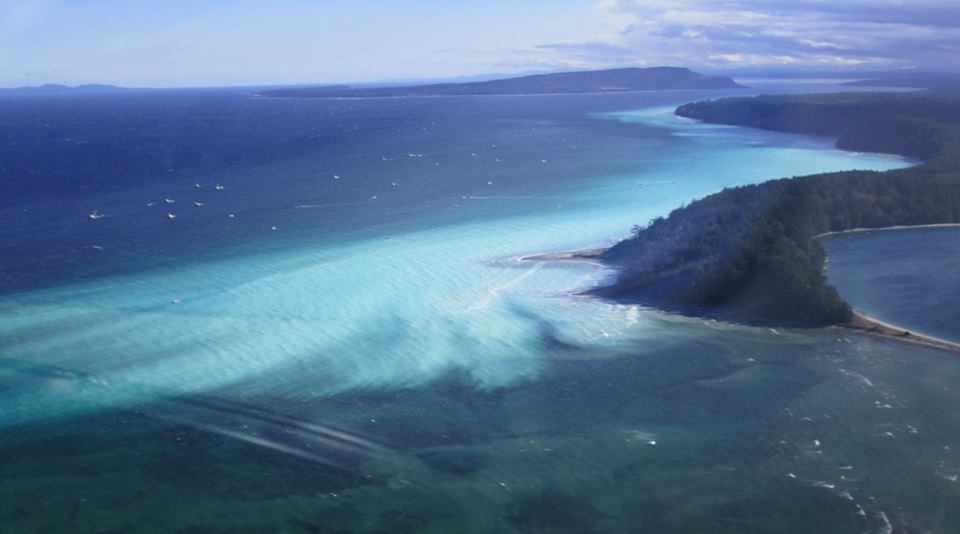UNION BAY, B.C. – A local marine stewardship group is voicing its concerns over a proposed aquaculture project.
An application has been put forward for a geoduck south of the Coal Hills site near Union Bay.
Now, the Association for Denman Island Marine Stewards (ADIMS) is asking government officials to deny the application.
“The proponent wants to plant geoduck in the sub-tidal zone, which means that you’re getting six to ten metres underwater. So it’s an area that isn’t revealed when the tide goes out, it’s always underwater,” said Dorrie Woodward, chair of the ADIMS.
“Our concern is that the contaminated site, and the whole coal washing operation that was there earlier have been around for many decades, and over time, the tidal current, which moves south, will have moved those toxic sediments from the contaminated site southward into the area where this person has proposed to plant geoducks and grow them.”
Woodward said a key element is that when you plan a geoduck; you use a hydraulic hose called a stinger.
“If you’re doing it at densities of anywhere between 50 to 100,000 per hectare, that’s an awful lot of use of a hydraulic hose in the sediments, where the toxic contamination is layered down,” she said.
“Our real concern, and the concern of many others is that this particular type of aquaculture in this particular place will put those toxic sediments back up into Baynes Sound. It just seems sort of senseless to us.”
Woodward said she hopes government officials will deny the application until the relevant sediments are tested for toxins and the results of those tests are made available to the public.
“Couple of the things that we’ve done is get this around to our membership, and to people we work with who are allies and that share our concerns, so that they will also be making comments to the DFO and the province about what the problems are with this particular tenure application,” she said.
“I’m not sure, and nobody’s really sure about how receptive the DFO will be to this criticism of their choice to continue to work with this tenure applicant.”
She said they’re involving people who have specialized knowledge about these sediments, including an eco-toxicologist, to get in touch with the DFO regarding the application.
“We’re calling the DFO to make sure that tests of the sediments are done for the same toxins that are present at the contaminated site and to make that public, so that any decision that’s made regarding this particular tenure, that we understand what was involved and what the risks are to the marine environment.”
She noted that comments on the tenure are accepted until October 10th, so she’s hoping for a government response after that date.
“The DFO is not accountable for responding to comments. They just simply process them and we have no way of knowing (what they’re deciding),” she said.
Woodward added that a letter has been sent out to ministers advising them of the concerns, as well as the Department of Fisheries and Oceans (DFO).
“I think that the DFO and FLNRO, that particular ministry, which grants the actual seabed as the tenure, need to be much more transparent, so that when situations like this come up, the public knows whether or not tests have been done, whether a response has been made and whether or not the shellfish aquaculture is going to proceed in a safe way,” she said.
A request for comment has been sent to the proponent in the project.






